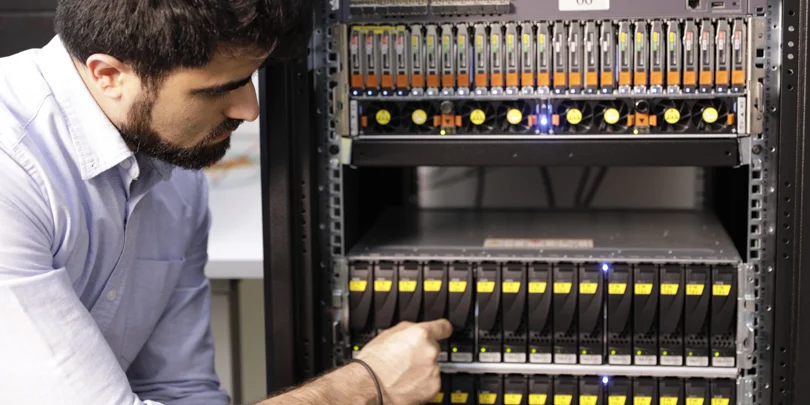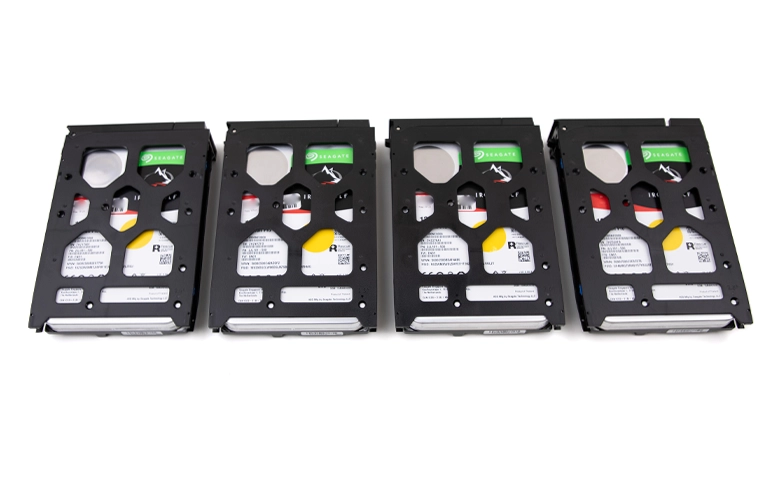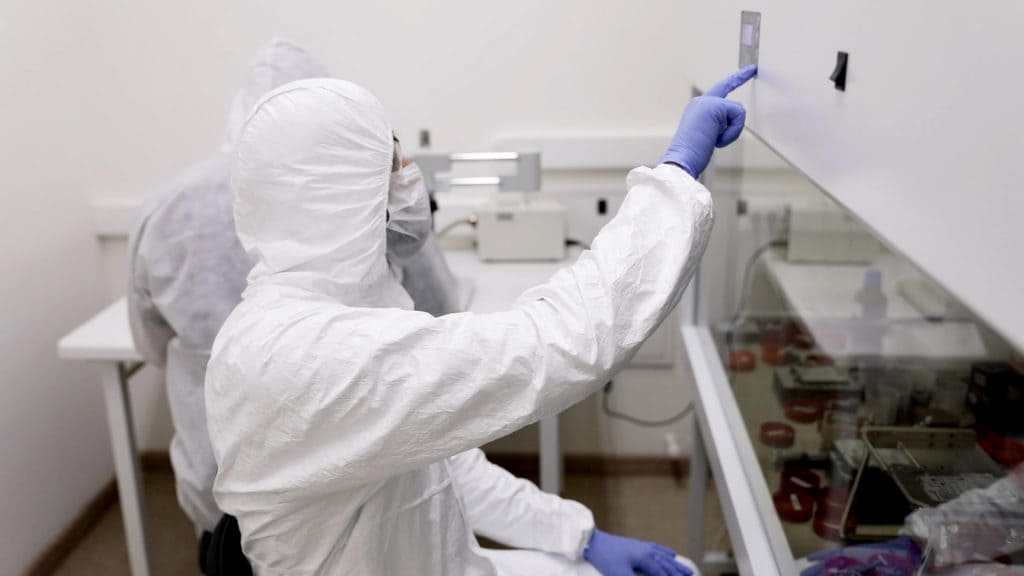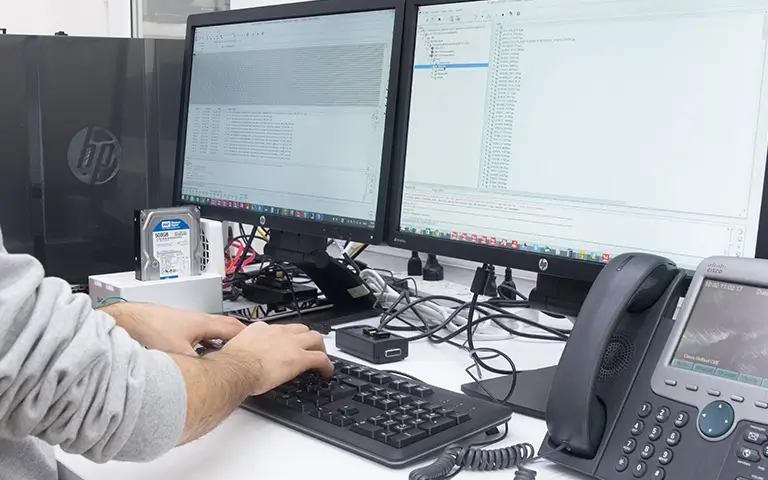A well known college in Massachusetts suffered a severe ransomware attack that brought its entire IT infrastructure to a halt. The attackers encrypted every critical system, including multiple virtual machines hosted on VMware ESXi servers.
Within hours, the institution’s network, academic records, and administrative data became completely inaccessible.
The incident disrupted day to day operations and put years of stored information at serious risk. The IT team quickly recognised that standard restore routines and built in tools would not be enough.
Because the encryption had spread across several layers of the storage environment, this became a highly complex ransomware data recovery case that required specialist expertise.
To restore their data securely and preserve its original structure, the college engaged RAID Recovery Services, a trusted provider experienced in large scale ransomware recovery and RAID reconstruction.

The Ransomware Breach And Its Impact
The ransomware attack did not stop at encrypting VMware ESXi data. It extended to the college’s entire backup estate.
The attackers accessed the management interface of a Quantum SuperLoader 3, emptied the tape backup libraries, and erased 32 tape catalogues. In a single move, the primary backups the IT team depended on were destroyed.
They also reset two QNAP NAS devices used as secondary storage, removing all redundant copies and virtual machine snapshots. With both primary and backup data compromised, the institution faced a full data outage across its environment.
This case highlights how modern attacks are designed to disable backup infrastructure first, making ransomware data recovery significantly more difficult.
Learn more about common risks to tape backup systems and see a similar QNAP NAS recovery case.
Initial Evaluation And Technical Findings
When the college’s IT department delivered the affected storage devices to our lab, we carried out a detailed assessment to understand the scope of the damage and the complexity of ransomware data recovery in this case. The key findings were:
RAID configuration: The environment consisted of multiple drives configured as a RAID 6 volume with a total capacity of 42 TB.
Recovery goal: Our primary objective was to restore the data while preserving the original folder structure, file names, and timestamps.
Drive condition: All drives were in good physical condition, with no evidence of head crashes, motor failure, or other mechanical defects.
Technical complexity: The IT team had enabled Microsoft Deduplication on an iSCSI volume presented by Synology devices, which introduced several layers of data mapping that needed to be addressed during recovery.
Data integrity priority: Protecting the original data was critical, so every stage of the ransomware data recovery plan was built around non invasive, read only methods.
For further insight into how redundancy functions in comparable environments, explore our guide on RAID 6 configuration.

Challenges In Multi Layered Data Recovery
This ransomware data recovery project involved several tightly integrated technologies, each adding its own layer of complexity. Our engineers had to address the following challenges:
Virtualisation layer: The encrypted VMware ESXi environment required careful handling so virtual disk images could be extracted without altering damaged metadata or triggering further corruption.
Deduplication system: Microsoft Deduplication had compressed and distributed data blocks across the volume. Before individual files could be restored, a custom reconstruction process was needed to rebuild these blocks in the correct order.
Synology iSCSI management: Deduplication had been applied on top of Synology managed iSCSI volumes, which meant our team had to interpret and decode proprietary structures to access the underlying data reliably.
Storage redundancy: Although the RAID 6 array offered fault tolerance, rebuilding it accurately was critical. Any mistake in the reconstruction process could have led to logical inconsistencies and further data loss.
Complex environments that combine RAID, NAS, iSCSI, deduplication, and virtualisation often present similar challenges when multiple storage platforms interact.
Learn more about related issues in Synology NAS recovery challenges and VMware recovery problems in our articles.
Our Recovery Process
After completing diagnostics, our engineers developed a structured plan to ensure safe and controlled ransomware data recovery. The workflow included several precise stages:
Each 8 TB helium drive was cloned using high speed imaging tools so that no work was carried out on the original media. This protected all source data in case of any unexpected interruptions.
During imaging, a nitrogen based cooling system was used to keep drive temperatures stable and prevent overheating throughout the extended cloning process.
Once all drives had been cloned, the RAID 6 array was carefully rebuilt to restore the original data flow and access patterns.
Our engineers then reversed Microsoft Deduplication to return each file to its original, pre deduplicated state before reassembling the iSCSI layout.
Finally, the reconstructed data was verified and the iSCSI volume was mounted for full integrity checks and validation.
These steps combined precise imaging with advanced logical reconstruction techniques, similar to the methods used in our RAID controller recovery process.

Fast turnaround times for business-critical data
Results and Data Verification
Once the ransomware data recovery workflow was completed, we successfully restored the full 42 TB RAID 6 volume. All recovered data retained its original folder hierarchy, file names, and timestamps, enabling the college to reintegrate information into its production systems without restructuring.
Our verification process involved several validation stages to confirm data integrity and ensure that both virtual machines and file systems were fully operational. The recovered VMware images were mounted, tested, and confirmed to perform in line with their pre attack state.
By completing the recovery without altering the original media, we ensured the college could safely resume academic and administrative operations in a controlled and timely manner.

Conclusion and Lessons Learned
This case demonstrates how sophisticated ransomware attacks can compromise even well planned backup strategies. By targeting both primary storage and redundant systems, attackers make ransomware data recovery significantly more complex without specialist support.
The experience of this Massachusetts college underlines the need for isolated backups, strict access controls, and routine integrity checks to reduce the impact of similar incidents.
At RAID Recovery Services, we specialise in complex recoveries involving ransomware, RAID platforms, and virtualised environments. Our expertise helps organisations regain access to critical information while maintaining full data integrity.
If your business has been affected by ransomware or corrupted backups, contact our team for professional ransomware recovery services and secure data restoration solutions.
Trust the experts with proven results
Frequently Asked Questions
How can ransomware affect RAID storage systems?
Ransomware can encrypt data across every drive in a RAID array, including virtual environments and attached backup volumes. Once encrypted, files become inaccessible and the array cannot be rebuilt in a safe way without specialist ransomware data recovery and decryption procedures.
Why did the attackers target the college’s backup systems?
Modern ransomware campaigns often focus on disabling backups first to make recovery far more difficult without paying a ransom. By erasing tape catalogues and resetting NAS devices, attackers remove redundancy and push organisations into a critical data loss situation.
Can data be recovered after ransomware encrypts virtual machines?
Yes. In many cases, data can be recovered by reconstructing the RAID structure, extracting virtual disk images, and repairing or restoring the underlying file systems. Our team specialises in ransomware data recovery across VMware, iSCSI, and similar virtualised environments.
How did RAID Recovery Services recover 42TB of encrypted data?
We cloned each drive, rebuilt the RAID 6 array, reversed the Microsoft Deduplication layers, and reconstructed the iSCSI volume. This structured workflow allowed full restoration of data while preserving original file names, folder hierarchy, and timestamps.
How can organizations protect themselves from similar ransomware attacks?
Regularly test backup systems, maintain offsite and offline copies, restrict remote access to management interfaces, and use network segmentation to contain potential breaches. Most importantly, ensure your incident response and recovery plans include access to professional ransomware data recovery specialists such as RAID Recovery Services.